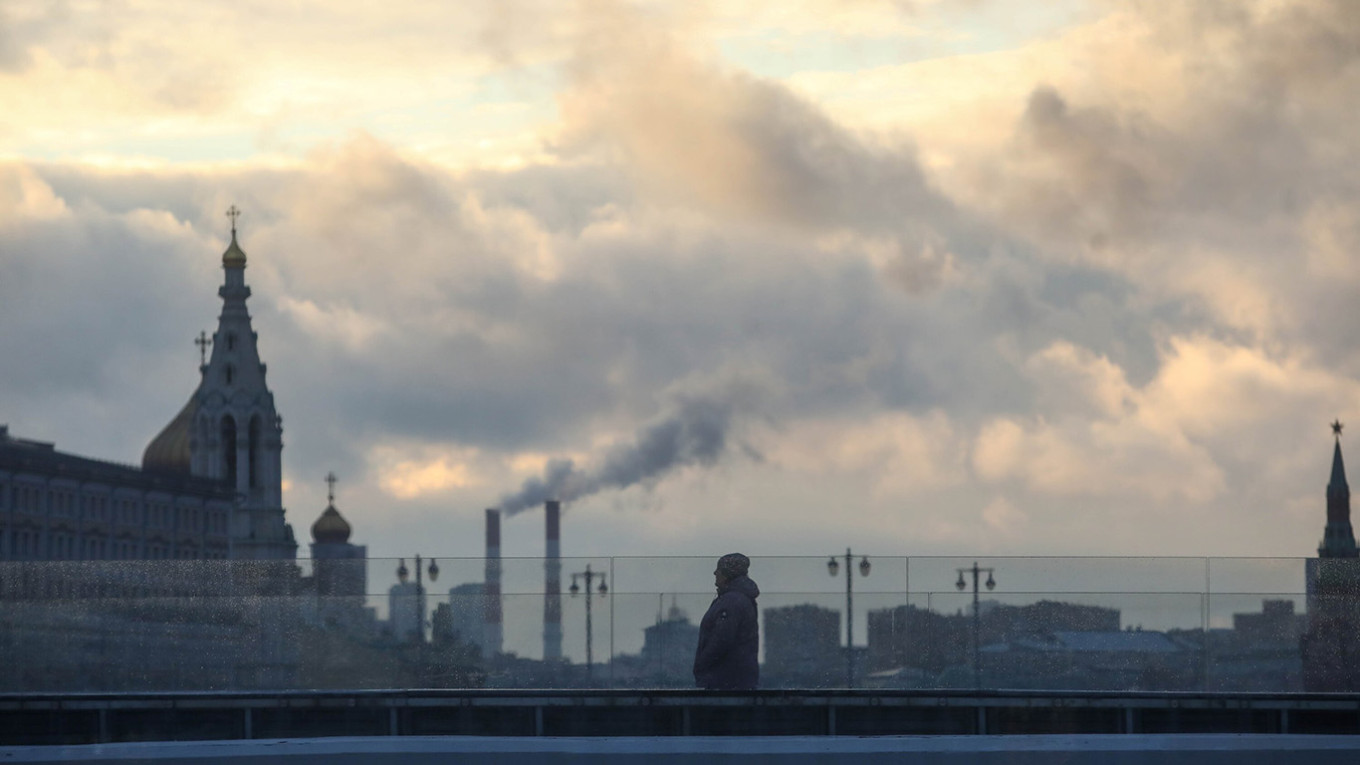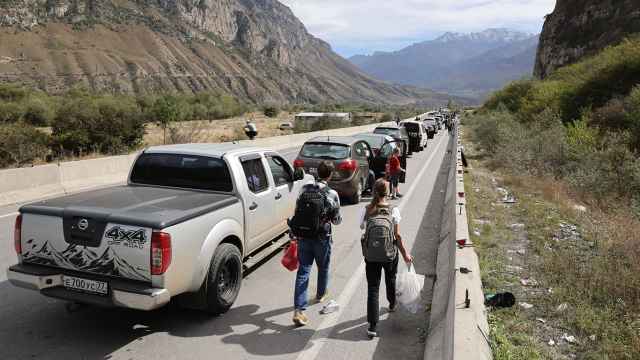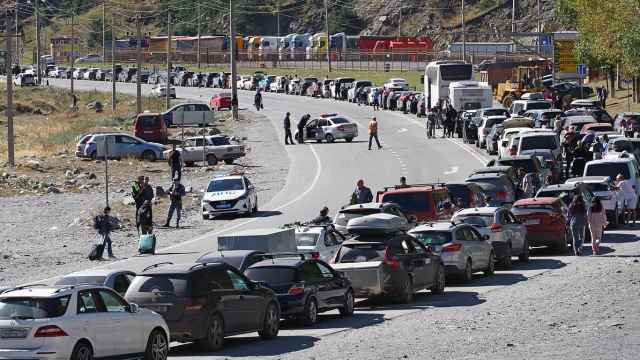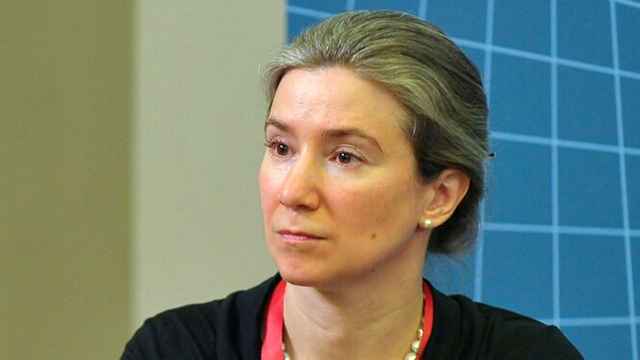Hundreds of thousands of Russians fled the country after Moscow launched its full-scale invasion of Ukraine in February 2022 — escaping mobilization, political pressure, or simply seeking a more stable life abroad. Some have since made the difficult and often controversial decision to return.
Through in-depth conversations with these returnees, The Moscow Times explores their complex journeys — the urgency of their departures, the struggles of exile and the bittersweet reality of coming home to a changed Russia.
Their stories reveal the personal cost of war, the weight of leaving everything behind and the uneasy feeling of returning to a country that both is and isn’t the same as the one they left.
Alexei, 29, left Moscow in September 2022, returned in June 2023
When mobilization was announced in the fall of 2022, I fled to Turkey in a panic. At that moment, I didn’t care where — I just needed to escape being sent to Ukraine. Turkey seemed like the best choice: close, relatively easy paperwork, a warm climate and a Russian-speaking community. But things didn’t go as planned.
In Istanbul, I rented an apartment in Avcilar. The landlord took three months’ rent upfront but didn’t officially register the contract, saying it would be “easier.” That was my first mistake. When I applied for a residence permit, I found out my district was no longer eligible. Rental prices had skyrocketed, and landlords were hesitant to rent to Russians without guarantees. I eventually found another apartment and submitted my documents, but mass rejections of Russian applicants had begun. No one understood the logic — some were approved, others weren’t. Many speculated it was political pressure or a move by the Turkish government to curb migration.
When my application was rejected, I had three choices: stay illegally and risk fines and deportation, try another country, or return to Russia. I was drained — financially and emotionally. Another move wasn’t an option. So, I booked a flight through Armenia and went back.
Landing in Moscow, I realized I’d lost half a year and a small fortune, only to end up where I started. On the surface, life seemed normal — people pretended nothing had changed. But I knew it was an illusion. I started sending resumes to foreign companies, hoping to leave again.
My biggest lesson? Emigration isn’t just about buying a ticket and renting an apartment. Without a clear strategy, backup plan, and legal knowledge, you can end up with nothing. But one thing is certain — I won’t stop trying to find my place outside Russia. I don’t want to live in a military dictatorship. For me, February 24 has been going on for three years — and I refuse to be complicit.
Anna, 41, left St. Petersburg in March 2022, returned in July 2024
Before the war, my family had been working on getting Israeli passports through my Jewish grandfather. We had tickets for March 1, 2022, planning a short trip to finalize the paperwork. But then February 24 happened. We left — and never came back.
It was one of the hardest times in my life. I owned a small coffee shop in St. Petersburg — something you can’t run remotely. My husband had an easier time; he worked for an American pharmaceutical company and managed to relocate. Without his salary, we wouldn’t have lasted in Israel. Our savings would’ve run out in months.
Our daughters, 7 and 11 at the time, struggled the most. The younger one had just started school, the older one was in that fragile stage between childhood and adolescence. They thought we were going on vacation. Yes, we explained the war and Putin, but no child can fully process something like this.
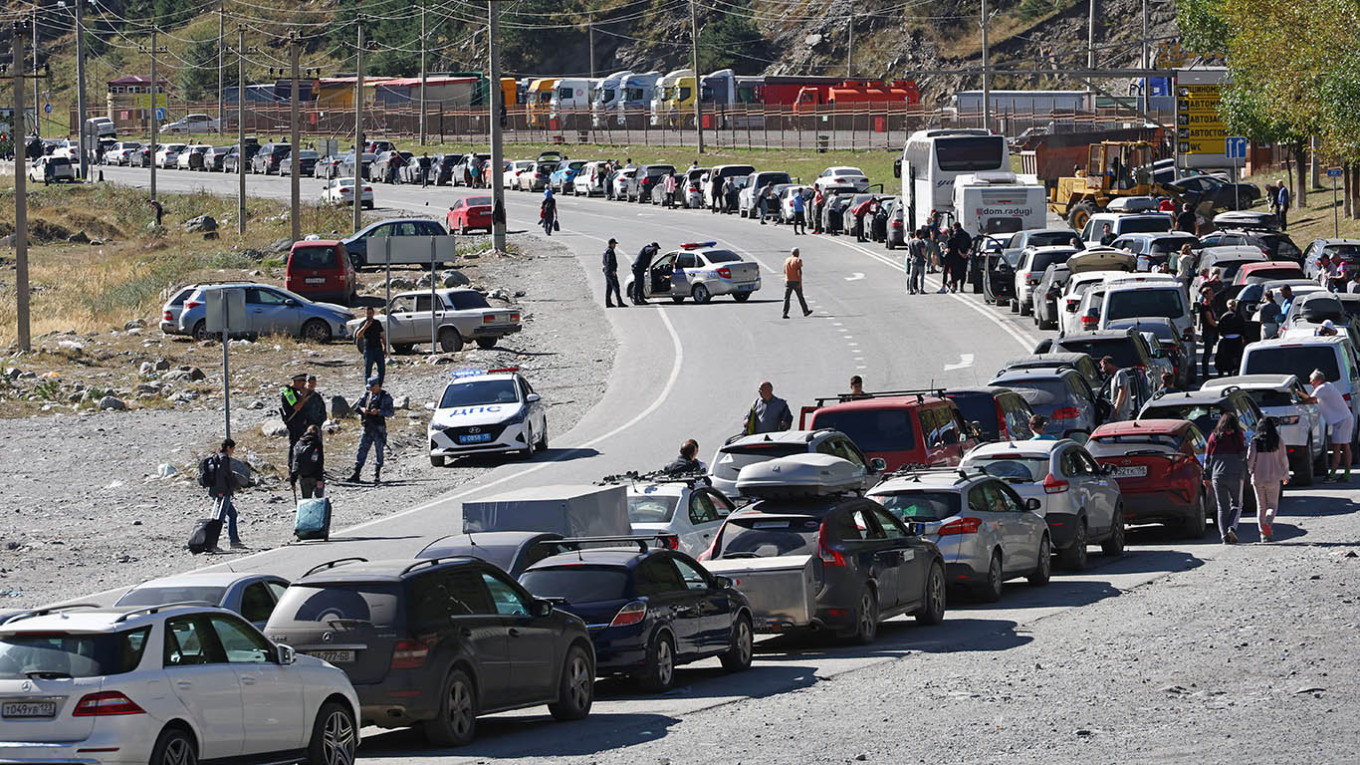
We settled in Jerusalem. The government paid for two weeks in hotel quarantine due to Covid. The kids were going stir-crazy. We rented an apartment without seeing it first, but luckily, it matched the photos. My husband worked remotely, the children started school and I eventually found a job as a supermarket manager.
Then October 7 happened. We always knew Israel was unstable — there had been terrorist attacks and shellings — but we never expected something like this. We were shocked that Israeli intelligence failed so catastrophically. We had trusted the Iron Dome, the army, the security system. Suddenly, we were running to bomb shelters multiple times a day. We adapted, the kids adapted, but it was hard.
After two and a half years, my husband lost his job. He tried to find another, but couldn’t. My supermarket salary wasn’t enough for a family of four. The thought of returning had already crossed our minds — especially after the war with Hamas began. We still had our apartment in St. Petersburg, our car, our friends. My coffee shop was still running, managed by my friend. When my husband finally got a job offer in Russia, we decided to go back.
Our older daughter was overjoyed. She had never adapted to Israel. But returning felt surreal. St. Petersburg had changed. On the drive home from the airport, we saw military recruitment billboards every 200 meters. Food prices had doubled. And the atmosphere — maybe I’m imagining it, but I feel fear in the air.
I remind myself: Living in Russia doesn’t make me a criminal. But I keep up with the news, and I know what’s happening in Ukraine should never have happened. My husband and I have good jobs now. Our daughters go to a private school — we hope to shield them from propaganda. We’ve cut ties with all the Z-patriots we once knew. We live in a bubble.
But nothing will ever be the same. And the thought of leaving again never really goes away.
Sergei, 40, left Nizhny Novgorod in October 2022, returned in November 2024
I first thought about leaving in early 2022, but my wife and I had no savings or passports. By the time we got our documents, the initial panic had subsided. Then, when mobilization was announced, the fear hit again. Friends were leaving — some in a rush, others with detailed plans. By the time my fifth friend left, I knew we had to go too.
We moved to Turkey in October 2022 with two suitcases. It quickly became clear that staying wasn’t an option. Like most Russians, I was denied a residence permit. No explanations, no clear criteria — just rejection. Some said it was political, others blamed the housing crisis. Either way, we had to leave.
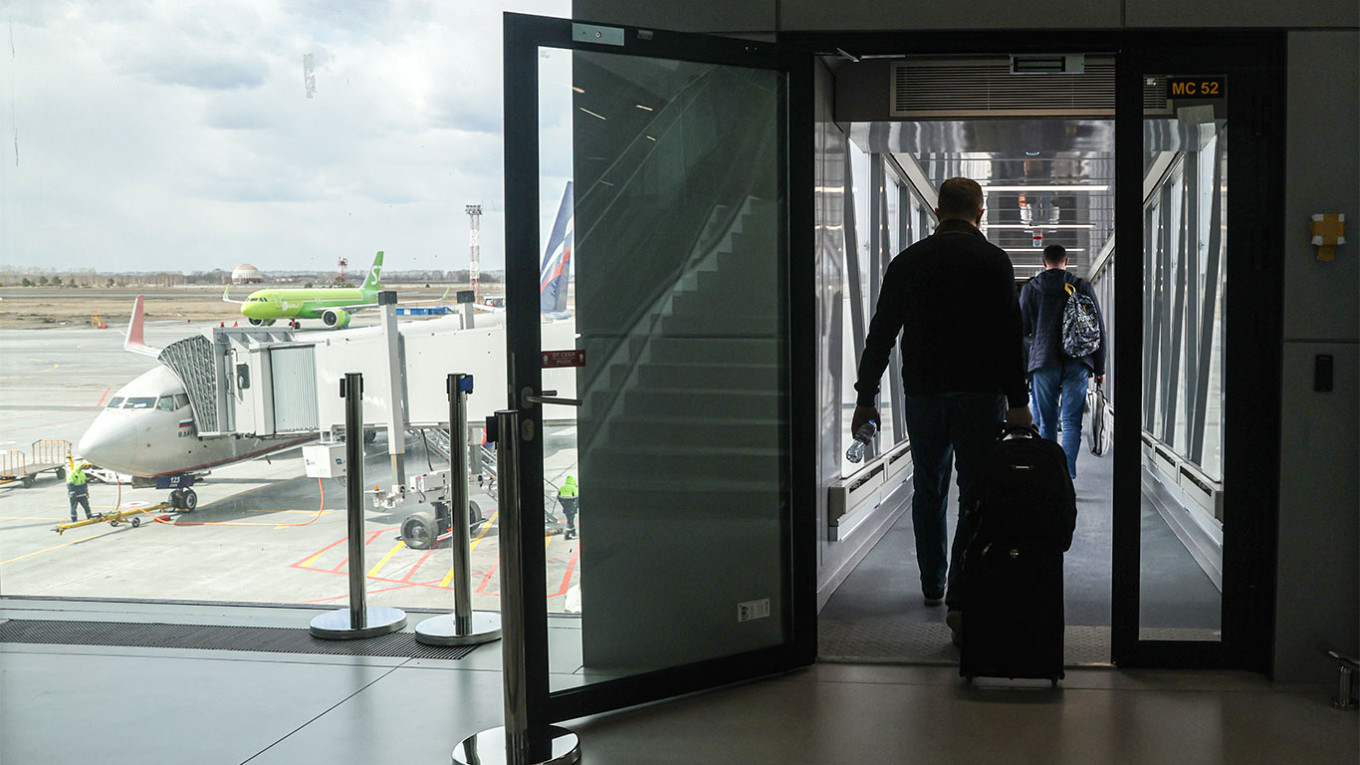
Next, we tried Armenia. No visa required, similar culture, many Russian expats. At first, it seemed perfect. We found an apartment in Yerevan, made friends and even started learning Armenian. But within a year, it became clear we couldn’t stay. Prices had soared, Russian bank cards stopped working and the Nagorno-Karabakh conflict made everything uncertain. Our savings were running out, and my wife, who never fully adapted, wanted to go home.
At first, returning felt like a failure. But the more I thought about it, the more I realized it was just another step. I wasn’t conscription age, had never served, had no military specialty — my risk of being drafted was low. And life abroad was becoming impossible.
Back in Nizhny Novgorod, things were eerily familiar. People worked, went to bars, and pretended nothing had changed. There were more "Z" symbols and military billboards, but otherwise, daily life continued. I had mixed feelings — everything was easier, yet the war was still there, in the background.
The hardest part was telling friends who stayed abroad. Some understood, others saw it as a betrayal. But I’ve made peace with my decision. I want to outlive Putin’s regime. I want to be here when it collapses and help rebuild.
For now, I work, save money and keep my options open. The future is uncertain everywhere. At least here, I know the rules of the game.
A Message from The Moscow Times:
Dear readers,
We are facing unprecedented challenges. Russia's Prosecutor General's Office has designated The Moscow Times as an "undesirable" organization, criminalizing our work and putting our staff at risk of prosecution. This follows our earlier unjust labeling as a "foreign agent."
These actions are direct attempts to silence independent journalism in Russia. The authorities claim our work "discredits the decisions of the Russian leadership." We see things differently: we strive to provide accurate, unbiased reporting on Russia.
We, the journalists of The Moscow Times, refuse to be silenced. But to continue our work, we need your help.
Your support, no matter how small, makes a world of difference. If you can, please support us monthly starting from just $2. It's quick to set up, and every contribution makes a significant impact.
By supporting The Moscow Times, you're defending open, independent journalism in the face of repression. Thank you for standing with us.
Remind me later.


